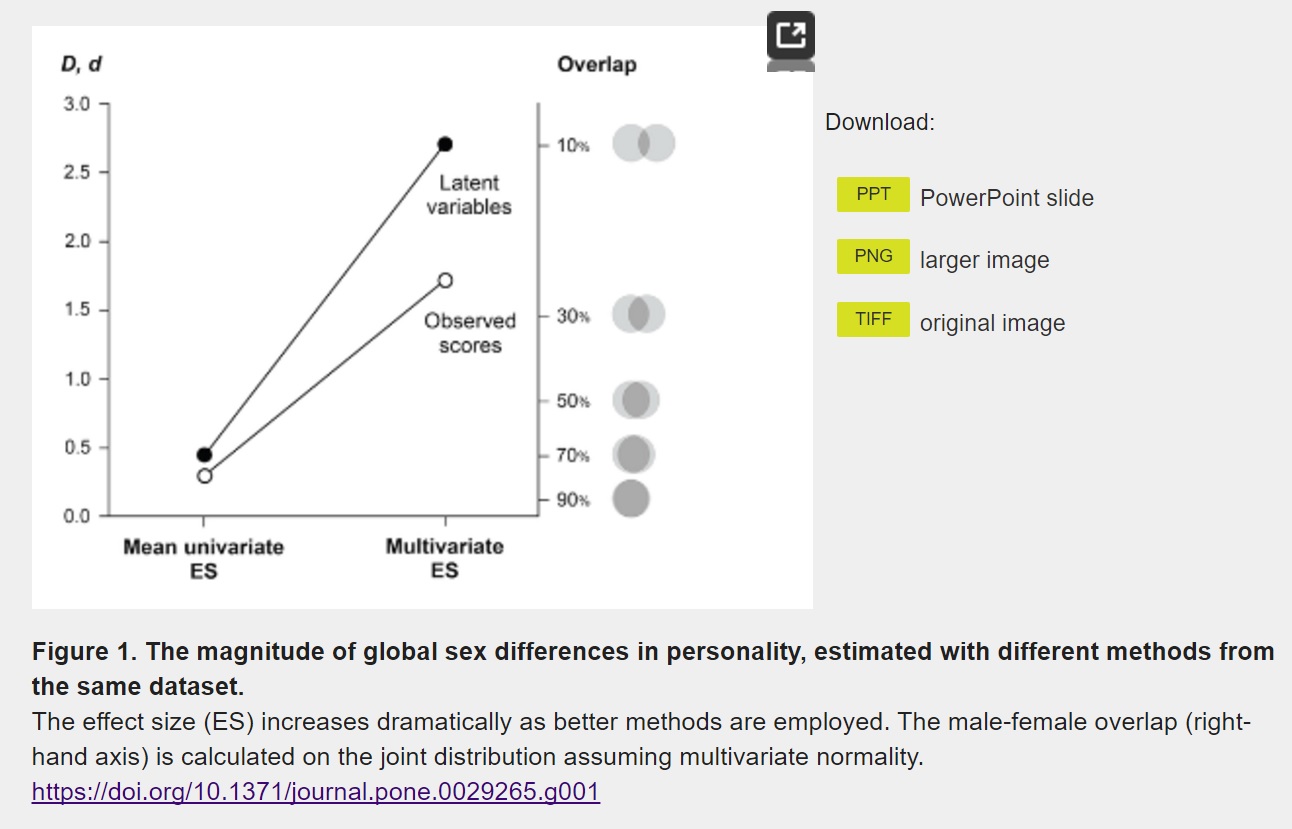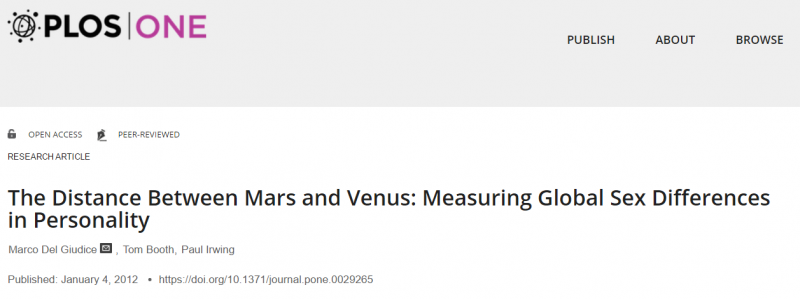
I started collecting the studies of sex differences in the summer of 2017 during the Damore-Google debacle. Over two years later I have over 70 pages of links and abstracts of such studies, both sociological and biological, including weak studies and meta-studies. Such knowledge is desperately needed in this day and age of rank gaslighting on the issues of sex differences, even within the church, yes, conservative churches.
Differences, of course, are not absolute and differ among individuals. But in sufficiently large group settings or in the right circumstances they can and do make a difference.
The Distance Between Mars and Venus: Measuring Global Sex Differences in Personality
“Sex differences in personality are believed to be comparatively small. However, research in this area has suffered from significant methodological limitations. We advance a set of guidelines for overcoming those limitations… Personality measures were obtained from a large US sample (N = 10,261) with the 16PF Questionnaire…Even excluding the factor showing the largest univariate ES, the global effect size was D = 1.71 (24% overlap). These are extremely large differences by psychological standards… The idea that there are only minor differences between the personality profiles of males and females should be rejected as based on inadequate methodology.
“…Another possible objection is that our findings are based on self-reported personality, and may be inflated by gender-stereotypical or socially desirable responding. Of course, the same objection would apply to virtually all of the published literature onn sex differences in personality, including Hyde’s meta-analysis [9]. We consider this objection to be weak for two main reasons. First, meta-analytic evidence shows that sex differences in aggression (a highly sex-typed behavior) are very similar when assessed by observation and self-reports, and even stronger when measured by peer-reports [70]. Second, self-reports will actually deflate sex differences if people tend to rate their own personality in relation to members of their own sex instead of “people in general” [11], [71]. Indeed, if people used the mean of their own sex as a reference point, any absolute mean difference between the sexes would simply disappear from self-reported scores. Thus, more gender-stereotypical attitudes can actually lead to smaller sex differences in self-reported personality; this paradoxical effect is a likely explanation of the fact that sex differences in self-reported personality and interests are larger in more gender-egalitarian cultures [11].”






